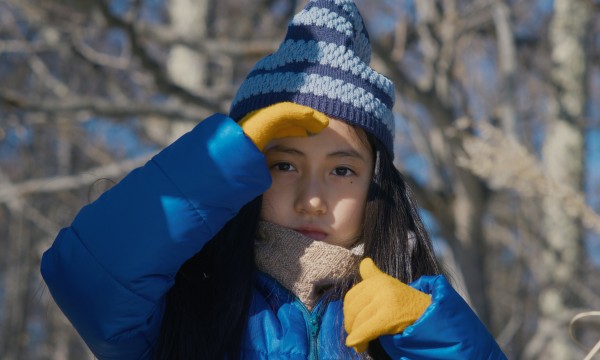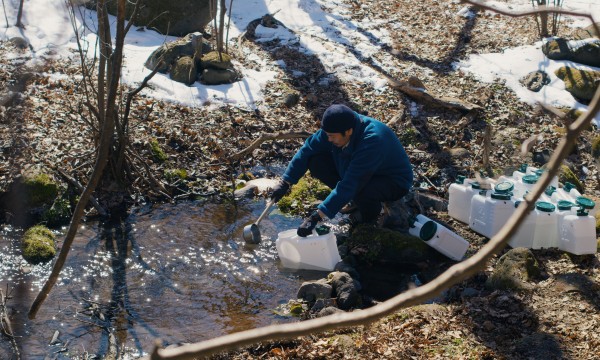This Japanese film, with English subtitles, tells the story of people in a rural village in Japan who become concerned about the environmental impact on their landscape of a planned intrusion.
EVIL DOES NOT EXIST. Starring: Hitoshi Omika, Ryo Nishikawa, Ryuji Kosaka, and Ayaka Shibutani. Directed by Ryûsuke Hamaguchi. Rated PG (Mild themes and violence). 106 min.
Peter Sheehan, associate of Jesuit Media Australia
The film focuses on a single parent, Takumi (Hitoshi Omika) who lives in Harasawa, a small rural village, close to Tokyo, with his young daughter, eight-year old Hana (Ryo Nishikawa). Takumi is a wood-cutter and water-gatherer and spends his time doing odd jobs for people in his village.

The film was awarded Best Film at the 2023 London Film Festival, and awarded the Grand Jury Prize at the 2023 Venice International Film Festival. It also won the Greenpeace Award at the 2023 San Sebastián International Film Festival. The Director of the movie, Ryusuke Hamaguchi, is much admired for his Directorship of his well-received 2021 movie, “Drive My Car” (Ecumenical Prize Cannes 2021).
The Idyllic peace of the village, nestled among untouched land and crystal-clear waters, is disrupted by a Tokyo Company called “Playmate”. The Company wants to start construction of a “glamping” site for city tourists. The work threatens the health and well-being of the village community. Villagers fear that the construction will destroy the ecology of the environment around them, and will destroy the pristine cleanliness of their waters and their land. At present, mountain-deer peacefully roam free, and that will be no-longer. The villagers know that glamping will provide better, more luxurious accomodation and facilities than traditional camping. The construction will be profitable, but the villagers fear their serene environment will be serene no longer.
Because “Playmate” wants glamorous camping for tourists, two Company Representatives (Ryuji Kosaka and Ayaka Shibutani) arrive to talk to the townspeople about the glamping proposal, and at the meeting Takumi describes the effect of the proposed development on the quality of the local spring water. Nervous evasion by Takumi at the meeting about key concerns arouses strong community anxiety.


This is a gentle, meditative movie that is compelling. Evil doesn’t exist in the peaceful community at the moment, and the villages want it to stay that way. The cinematography of the film is outstanding. Every shot has a purpose, and the film has an evocative musical score that soulfully draws the viewer into sharing the film’s reflective mood. Hamaguchi is a master Director, who paints a subtle portrait of humanity, but he offers us a surprisingly bleak, and shocking ending to suggest that evil will stay in the village. The film delicately balances human need with the power of nature. But corporate greed complicates the mix, and is able to destroy it.
Peter Sheehan is an Associate of Jesuit Media


